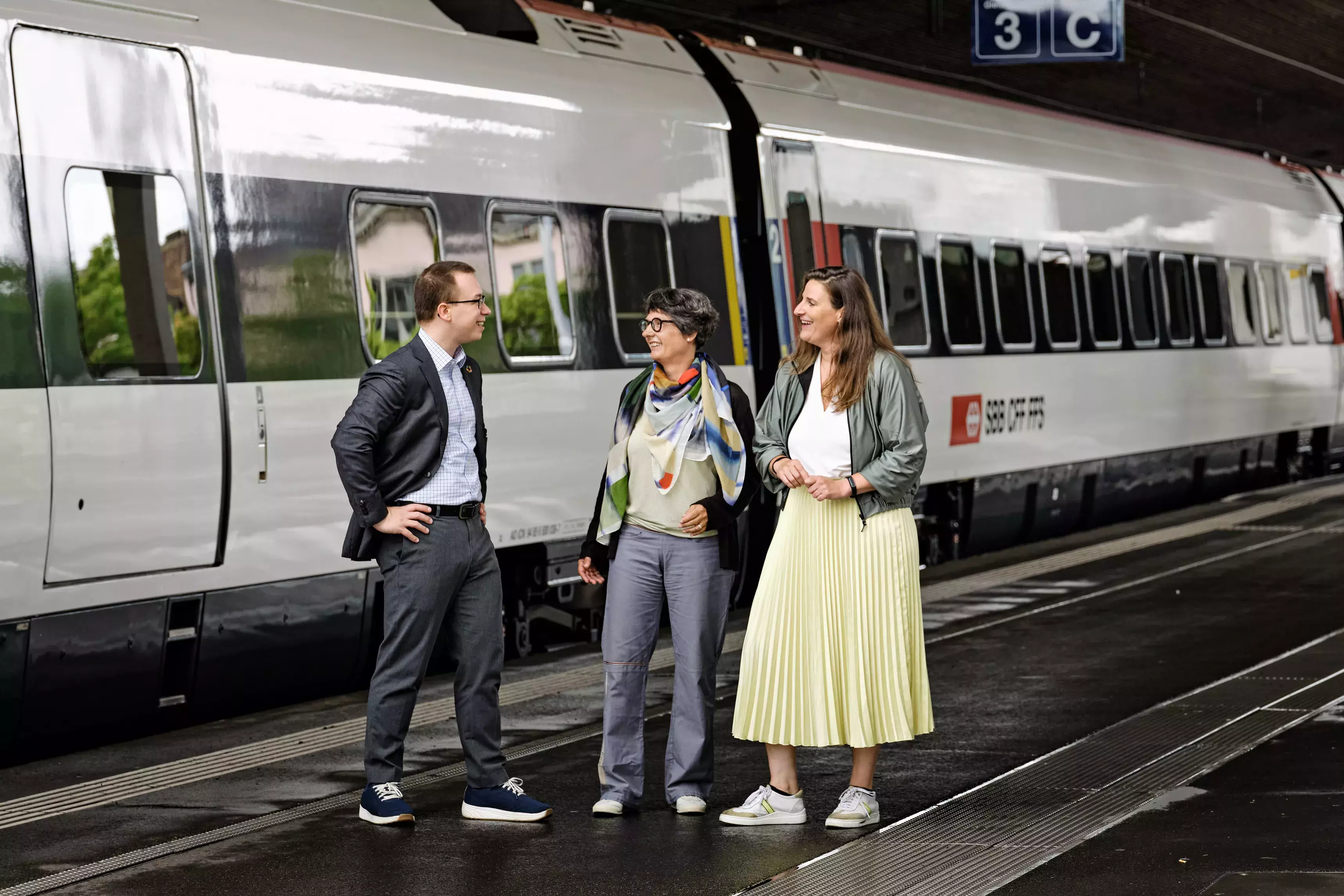Sustainable travel at the ZHAW
Despite internationalisation, the ZHAW is aiming to reverse the trend and reduce its flight emissions.

At the ZHAW, the majority of greenhouse gas emissions in the area of mobility are caused by air travel. If commuting is taken out of the equation, flight emissions alone accounted for around one-third of the ZHAW’s total emissions in 2022. In light of this fact, ZHAW employees and students should be encouraged to take personal responsibility for their actions in this area. ZHAW sustainable worked together with the School of Applied Linguistics as part of the Sustainable Travel @ ZHAW project to examine which approaches and mechanisms might be suitable for bringing about a corresponding change in mindset. In performing its work, the project team employed the qualitative method of focus groups with the aim of raising awareness among (frequent) travellers at the ZHAW about the specific need to cut flight emissions. At the same time, it also wanted to work with them to develop approaches for achieving this reduction. One finding from these focus groups is that employees require a framework that defines concrete guidelines and objectives, allowing them to act in a flexible and responsible manner. “There is a strong desire for a clear and supportive framework that stipulates a travel or emissions budget and provides planning options,” explains project leader Nadine Klopfenstein Frei. “This framework should also help to create transparency, visualise objectives and make the path towards reducing emissions visible.”
In-person meetings are only necessary to a certain extent
When it comes to developing a new perspective on travel behaviour, the biggest hurdle lies in overcoming the fear of participants that they may no longer be able to fulfil their performance mandate. Participants describe an expectation that, for certain activities at least, travel is a necessary component of their work at the ZHAW, for example as a means of generating income through projects and publications as well as through enhanced visibility and academic networking. At the same time, however, they make a strong distinction when it comes to projects and conferences abroad. While there is a belief that conference presentations can be better planned online and also held remotely without any major restrictions, there is no digital means of replacing the networking platform that conferences provide. In-person meetings should also take place from time to time during project work. However, the number of such meetings can be reconsidered with a view to improving sustainability. In future, it is possible that project participants may work abroad (long term) on an on-site basis and put their lessons together digitally.
Travel intervals becoming longer
Many employees feel an obligation to travel as part of their project acquisition role and in order to perform the project work itself. They express concerns about losing projects or perhaps not getting any projects at all if they scale back their travel. However, the coronavirus pandemic has led to considerable change here. Intervals between trips have become longer and travel is often used to take care of several tasks simultaneously. Clients also have sustainability goals and want to implement them. “At universities, there will always be travel, as this is important for both research and the development of intercultural skills,” says Francesco Bortoluzzi, Head of Sustainability Programmes. “However, sustainability considerations require that we come together to strategically rethink our approach to internationalisation: we need to travel less frequently and work more intensively when we do if we want to reduce emissions.”
The ZHAW can set a good example
The scientific and specialist project advisory board is in agreement that clear guidelines for sustainable travel at the ZHAW will lay the foundation for further measures. On the one hand, certain administrative processes need to be centralised. On the other, there is also a need for School-specific and strategy-compliant solutions to be developed in order to avoid a situation in which individual Schools or institutes are disadvantaged. “For the ZHAW, this also opens up an opportunity to take on a leading role in Switzerland in the area of sustainable travel if it succeeds in effectively addressing conflicting goals and finding socially acceptable alternatives,” says advisory board member Susann Görlinger, an expert in flight reduction projects at universities. It is also clear to the advisory board that resources for the implementation of measures and for the participation of employees in the discourse have to be ensured. Measures to raise awareness and motivational campaigns need to be developed that are accompanied by clear processes and information as well as incentives.